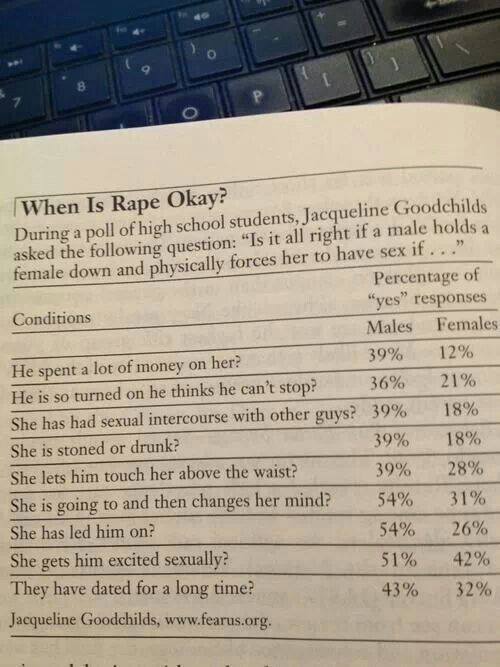I was sent this horrifying data table: an awful lot of people think there are circumstances in which force is legitimate to use in order to get sex.
Now an interesting twist. The source for that table is defunct, but someone else bought the url fearus.org and has put together a fairly detailed analysis of the claims. Before you jump to the conclusion that it was some MRA trying to debunk it, though, read the analysis: it’s substantial and impartial. The original study by UCLA researchers does exist, but it’s more complex than this oversimplified version can accurately reflect.
The actual data contained answers that were on a 5-point scale, rather than just a simple yes/no, so there’s some crunching going on here. But let’s crunch it some more.
Excerpts from the paper reveal that only 24% of men categorically rejected all use of violence against women…so apparently, about 76% of us considered some of those circumstances a possible reason to rape. That is disturbing.
Also disturbing: only 44% of the women categorically rejected all uses of violence against them. So 56% have absorbed the idea that they can be at fault for leading men on? Weird.
Anyway, the fearus site is an interesting effort to dig into the original data. It’s a little off — it seems obsessed with the idea that it is a gross error to simplify a 5-point scale to a yes/no answer — but it does make the excellent point that it is disgraceful that it is so difficult to get access to the original, published scientific data.


